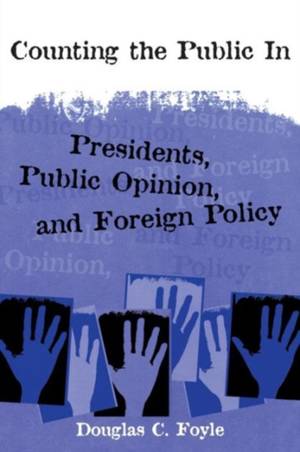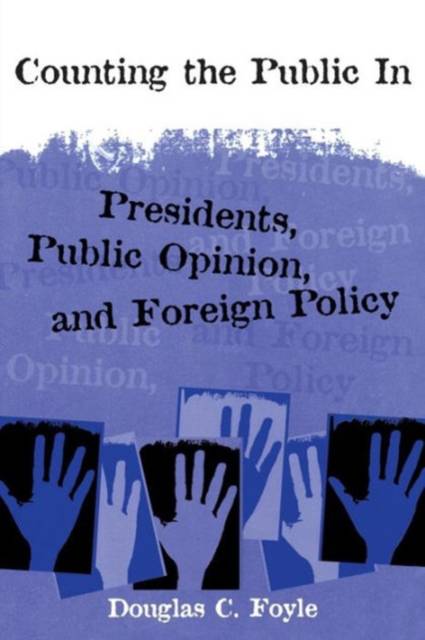
Bedankt voor het vertrouwen het afgelopen jaar! Om jou te bedanken bieden we GRATIS verzending (in België) aan op alles gedurende de hele maand januari.
- Afhalen na 1 uur in een winkel met voorraad
- In januari gratis thuislevering in België
- Ruim aanbod met 7 miljoen producten
Bedankt voor het vertrouwen het afgelopen jaar! Om jou te bedanken bieden we GRATIS verzending (in België) aan op alles gedurende de hele maand januari.
- Afhalen na 1 uur in een winkel met voorraad
- In januari gratis thuislevering in België
- Ruim aanbod met 7 miljoen producten
Zoeken
€ 54,45
+ 108 punten
Omschrijving
Does the public alter American foreign policy choices, or does the government change public opinion to supports its policies? In this detailed study, Douglas Foyle demonstrates that the differing influence of public opinion is mediated in large part through each president's beliefs about the value and significance of public opinion.Using archival collections and public sources, Foyle examines the beliefs of all the post-World War II presidents in addition to the foreign policy decisions of Presidents Dwight Eisenhower, Jimmy Carter, Ronald Reagan, George Bush, and Bill Clinton. He finds that some presidents are relatively open to public opinion while others hold beliefs that cause them to ignore the public's view. Several orientations toward public opinion are posited: the delegate (Clinton) favors public input and seeks its support; the executor (Carter) believes public input is desirable, but its support is not necessary; the pragmatist (Eisenhower, Bush) does not seek public input in crafting policy, but sees public support as necessary; and finally, the guardian (Reagan) neither seeks public input nor requires public support. The book examines the public's influence through case studies regarding decisions on: the Formosa Straits crisis; intervention at Dien Bien Phu; the Sputnik launch; the New Look defense strategy; the Panama Canal Treaties; the Soviet invasion of Afghanistan; the Strategic Defense Initiative; the Beirut Marine barracks bombing; German reunification; the Gulf War; intervention in Somalia; and intervention in Bosnia.
Specificaties
Betrokkenen
- Auteur(s):
- Uitgeverij:
Inhoud
- Aantal bladzijden:
- 368
- Taal:
- Engels
- Reeks:
Eigenschappen
- Productcode (EAN):
- 9780231110693
- Verschijningsdatum:
- 6/05/1999
- Uitvoering:
- Paperback
- Formaat:
- Trade paperback (VS)
- Afmetingen:
- 153 mm x 227 mm
- Gewicht:
- 517 g

Alleen bij Standaard Boekhandel
+ 108 punten op je klantenkaart van Standaard Boekhandel
Beoordelingen
We publiceren alleen reviews die voldoen aan de voorwaarden voor reviews. Bekijk onze voorwaarden voor reviews.









